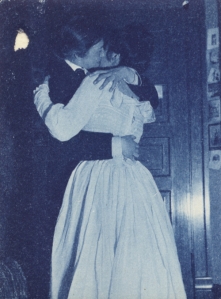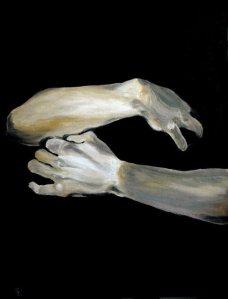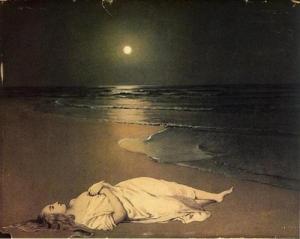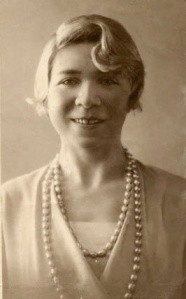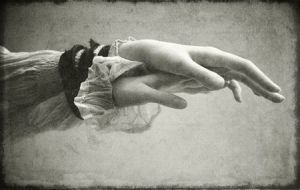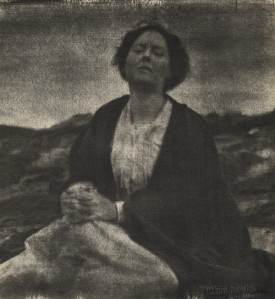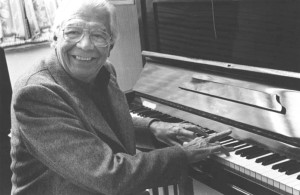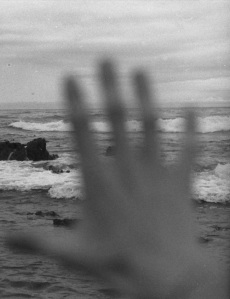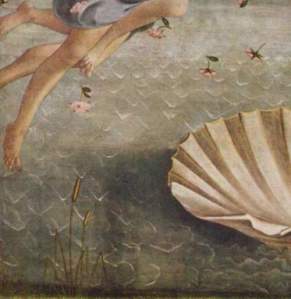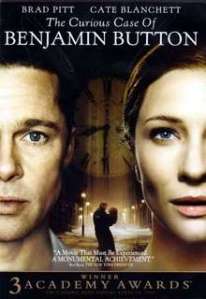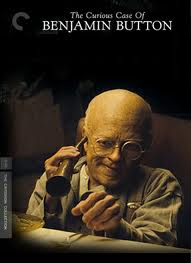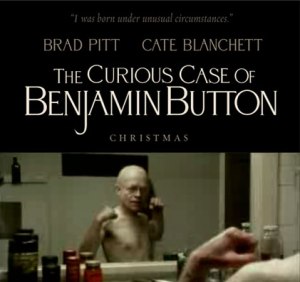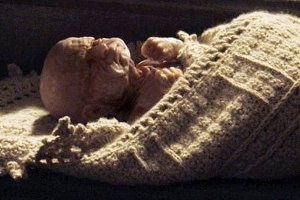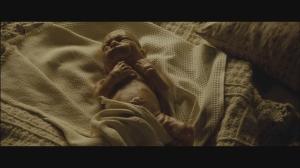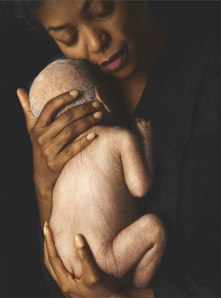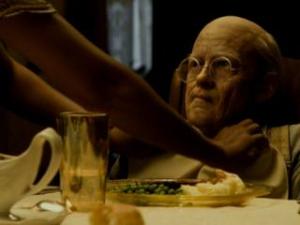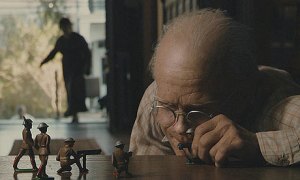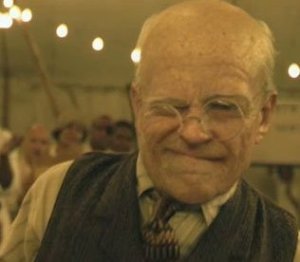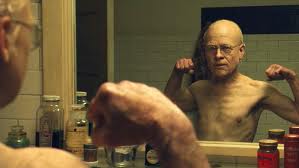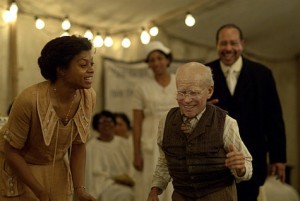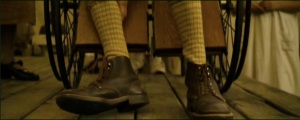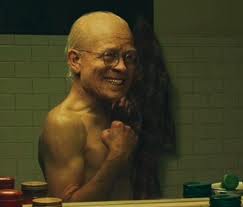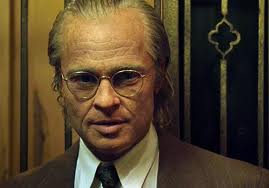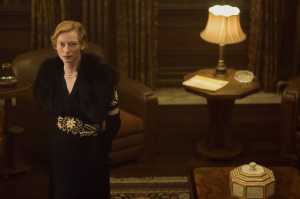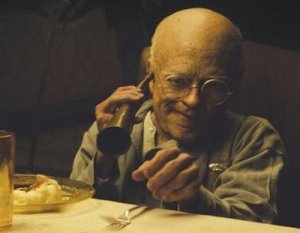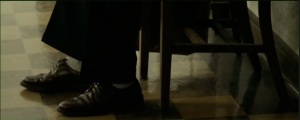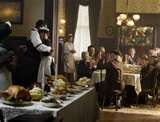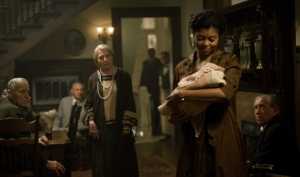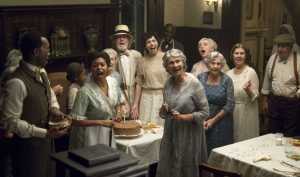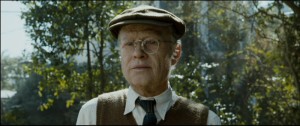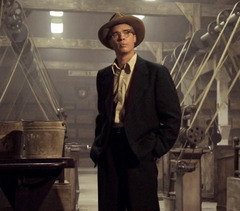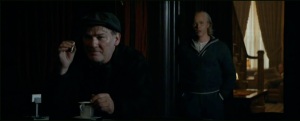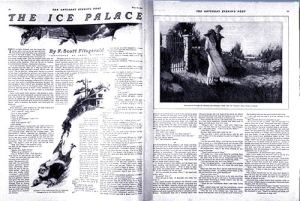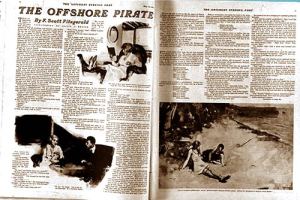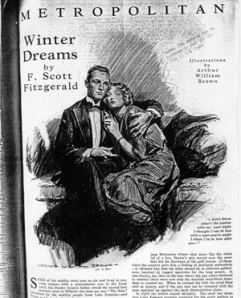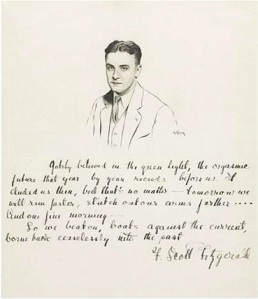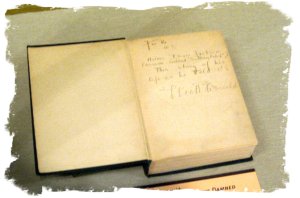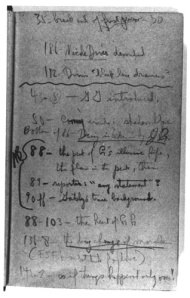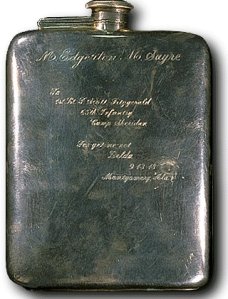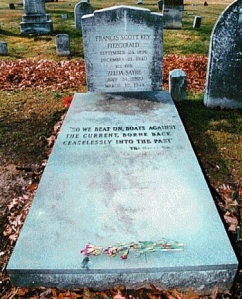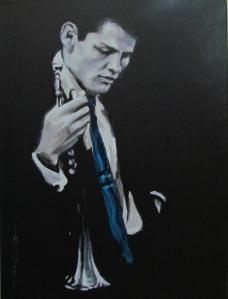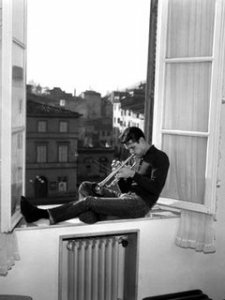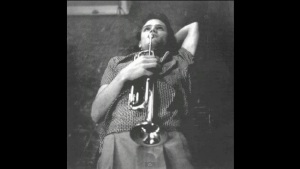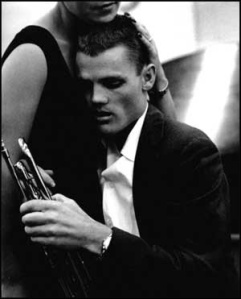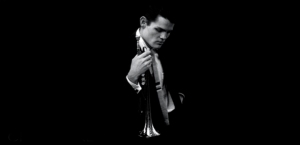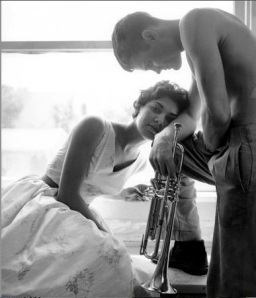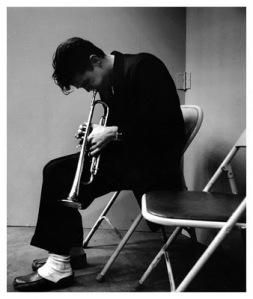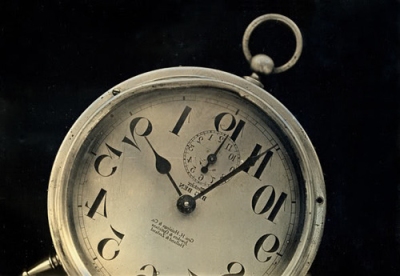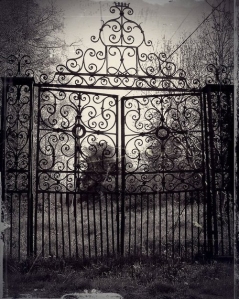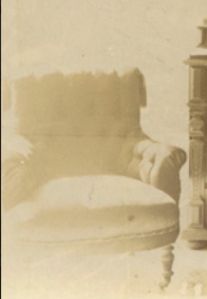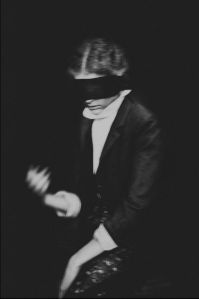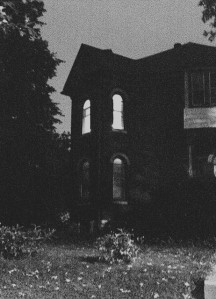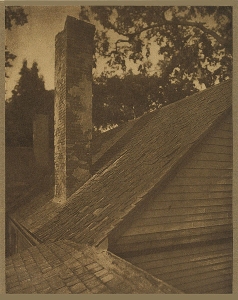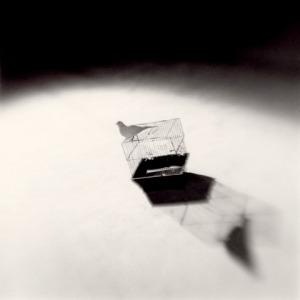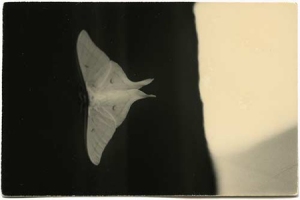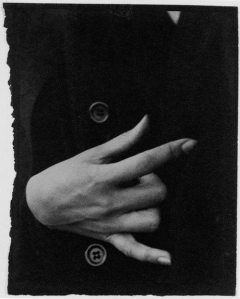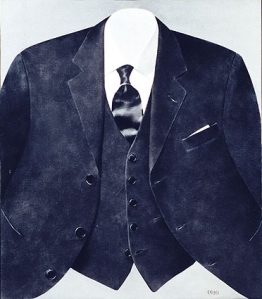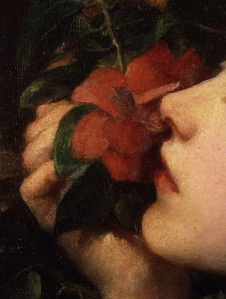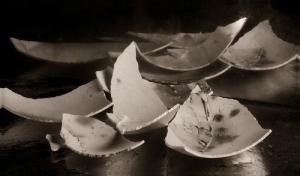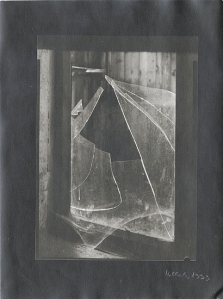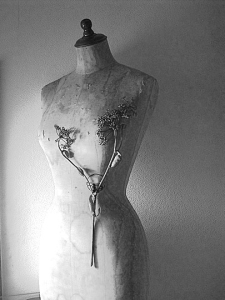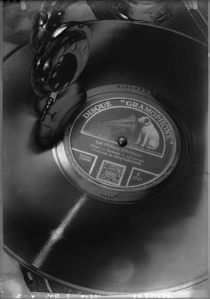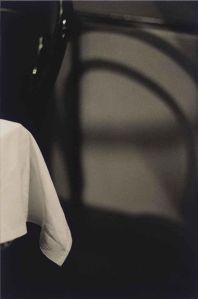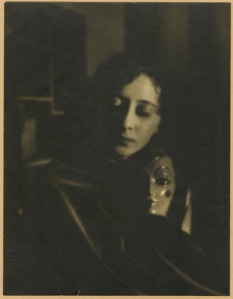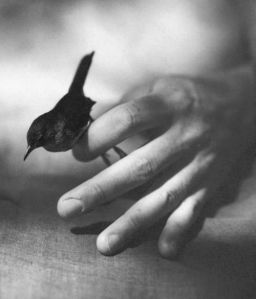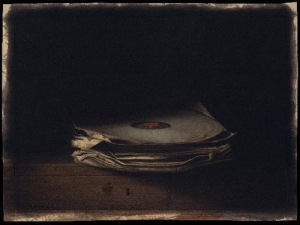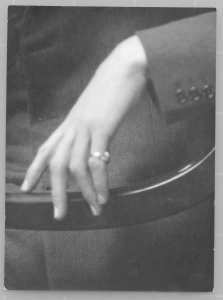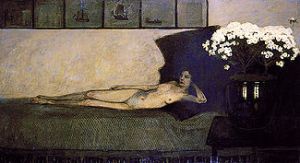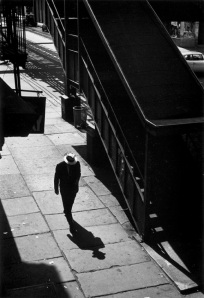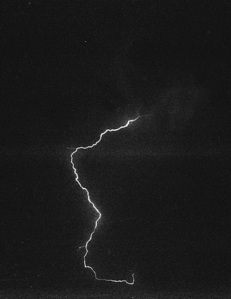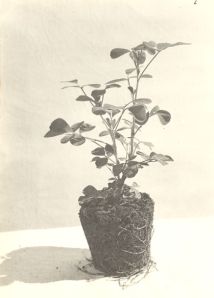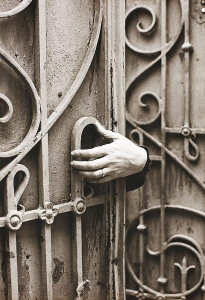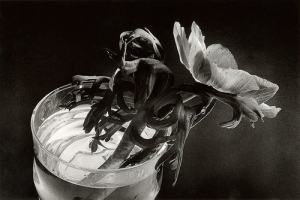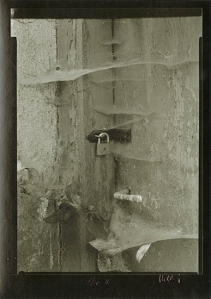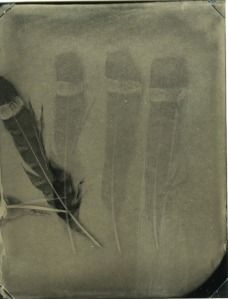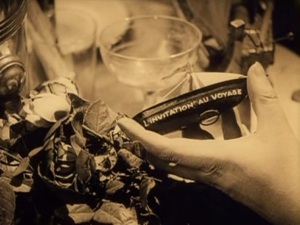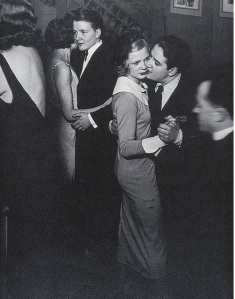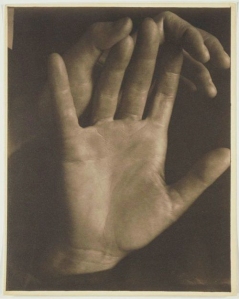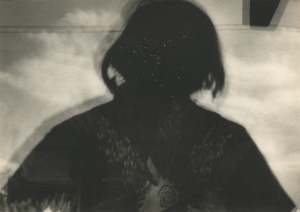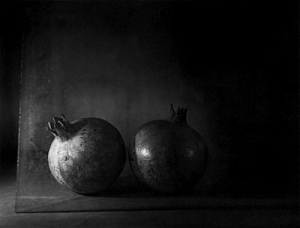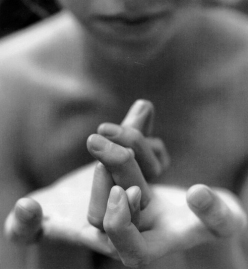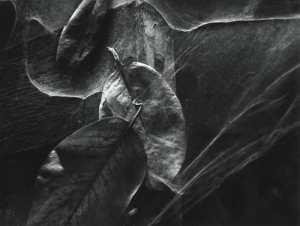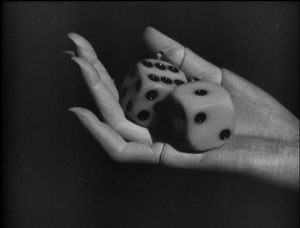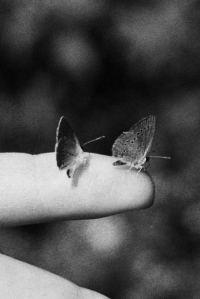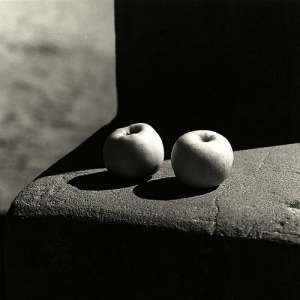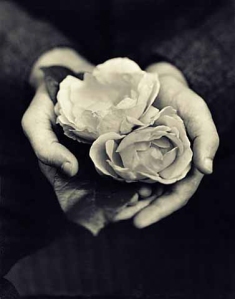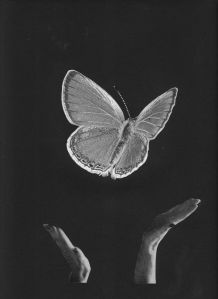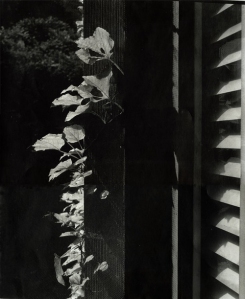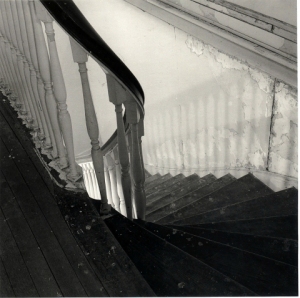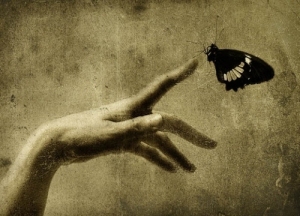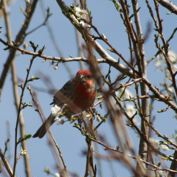
Sergey Aleksandrovich Yesenin (September 21 1895 – December 27 Dec. 1925)
Sergei Aleksandrovich Yesenin, Sergey Yesenin or Serge Isenin was born on September 21st 1895 or October 3rd 1895. He died by committing suicide, or was bumped off by the government a few months after his 30th birthday, having the week before sent a farewell poem to a friend or former lover, no one knows for certain. He was married six – or eight – times, depending on the source of information. The attachments he formed with the women in his life never lasted more than a year, after which time he abandoned them. One of his wives was Isadora Duncan, and another (the last) Sophia Andreyevna Tolstoya was the granddaughter of Leo Tolstoy. He had four children by three different women; the last, whom he never saw, was his son by the poet Nadezhda Volpin: Alexander Esenin-Volpin, was later to become a mathematician of note and a Soviet dissident.
1895 or October 3rd 1895. He died by committing suicide, or was bumped off by the government a few months after his 30th birthday, having the week before sent a farewell poem to a friend or former lover, no one knows for certain. He was married six – or eight – times, depending on the source of information. The attachments he formed with the women in his life never lasted more than a year, after which time he abandoned them. One of his wives was Isadora Duncan, and another (the last) Sophia Andreyevna Tolstoya was the granddaughter of Leo Tolstoy. He had four children by three different women; the last, whom he never saw, was his son by the poet Nadezhda Volpin: Alexander Esenin-Volpin, was later to become a mathematician of note and a Soviet dissident.
 Yesenin had longer, and perhaps more durable relationships with men than with women. His liaison with Nikolai Kliuiev lasted two years, and the one with Anatoly Mariengof, with whom he cohabited and to whom he dedicated many of his works, lasted four. Yesenin took up with Mariengof a year after his marriage (his second) to actress Zinaida Raikh in 1917. Despite substantial and undeniable evidence of his homosexuality or bisexuality, (he was very close ‘friends’ with openly gay poets Riurik Ivnev and Leonid Kannegiser, who promoted his career), these facts seem to be ignored in all the popular sources I came across on the web.
Yesenin had longer, and perhaps more durable relationships with men than with women. His liaison with Nikolai Kliuiev lasted two years, and the one with Anatoly Mariengof, with whom he cohabited and to whom he dedicated many of his works, lasted four. Yesenin took up with Mariengof a year after his marriage (his second) to actress Zinaida Raikh in 1917. Despite substantial and undeniable evidence of his homosexuality or bisexuality, (he was very close ‘friends’ with openly gay poets Riurik Ivnev and Leonid Kannegiser, who promoted his career), these facts seem to be ignored in all the popular sources I came across on the web.
Yesenin’s suicide-note, written in blood, was addressed to a young Jewish poet Wolf Ehrlich in whose company he had recently spent the night, Yesenin has never been considered by the Russians, who revere his work, as anything but heterosexual. This should come as no surprise, since Russian society, then, as now, was virulently homophobic, and to acknowledge a ‘national’ poet as being anything but dedicatedly heterosexual would be pure anathema.
considered by the Russians, who revere his work, as anything but heterosexual. This should come as no surprise, since Russian society, then, as now, was virulently homophobic, and to acknowledge a ‘national’ poet as being anything but dedicatedly heterosexual would be pure anathema.
Yesenin was a debauchèe from a very young age, given to drinking, and later, drug-taking. He was a philanderer, a wrecker of hotel-rooms, a hooligan by his own admission, who once scrawled obscene graffiti on a convent wall in the name of poetic innovation and, shamefully, he was a batterer of women. He was mentally unstable, having been admitted to mental institutions at least five times during his short life. He doubtless suffered from what we today think of as bipolar disorder, absence of impulse-control, depression, narcissistic disorder, borderline personality disorder and episodes of medium to severe psychosis complete with hallucinations.
 He was a poseur, given to costuming himself opulently in pseudo-peasant garb of silk shirt, red boots and gold belt. He relished being accorded what amounted to a semblance of royal patronage when he was asked to read his poetry to the Tzarina. He supported the revolution and applied for (and was refused) membership in the communist party, because he was considered “too individual and alien to any and all discipline.” Later on he was to denounce the revolutionaries as frauds, and there is a suggestion that unnamed and unidentified functionaries of the state compelled him to commit himself into the mental institution from which he ‘escaped’ a few days before his death. His work was banned by Stalin, but secretly devoured by the masses. His poetry is considered quintessentially Russian, and despite his violent behaviour and many other serious human defects, he is still considered a hero by the Russian people. Part of the cover-up of Yesenin’s homosexual relationships is the questionable account of the suicide note entrusted to Elisaveta Ustinova, with the directive that she should not read it immediately. In fact the note was given to the young Jewish poet Wolf Ehrlich, in whose company he had spent the
He was a poseur, given to costuming himself opulently in pseudo-peasant garb of silk shirt, red boots and gold belt. He relished being accorded what amounted to a semblance of royal patronage when he was asked to read his poetry to the Tzarina. He supported the revolution and applied for (and was refused) membership in the communist party, because he was considered “too individual and alien to any and all discipline.” Later on he was to denounce the revolutionaries as frauds, and there is a suggestion that unnamed and unidentified functionaries of the state compelled him to commit himself into the mental institution from which he ‘escaped’ a few days before his death. His work was banned by Stalin, but secretly devoured by the masses. His poetry is considered quintessentially Russian, and despite his violent behaviour and many other serious human defects, he is still considered a hero by the Russian people. Part of the cover-up of Yesenin’s homosexual relationships is the questionable account of the suicide note entrusted to Elisaveta Ustinova, with the directive that she should not read it immediately. In fact the note was given to the young Jewish poet Wolf Ehrlich, in whose company he had spent the  night two days prior.
night two days prior.
Anyone who reads Yesenin’s poetry and fails to feel the tectonic mood shift from ordinary sense into entranced melancholy has to be singularly unfeeling and insensitive, or even in a sense dead. His poems are powerful, compelling, evocative, persistent, haunting, inducing the mind to take flight and enter the places to which it is effortlessly conveyed. This can sometimes feel like a transplant of mood and emotions – a kind of possession: such intense feelings, such losses, confusion and despair….
One feels that Yesenin’s poetical modus was that of a hunter who was able to snatch the wild denizens of his symbolic brain from their forest-dwelling in his intuitive self, and to convey the essence of their potent and shadowy existence into poems, while keeping their wildness even as they are tamed by language. He was able to effect their forcible conversion into language, fix them on paper, and there to make them move again, and resume their lives in other minds.
 Yesenin is an aberration. His are disturbing poems, with their dark emotions, and jaunty rhythms, some of which express a kind of insolence, but most if not all, possessing a powerful and seductive beauty. It is clear that he was able to see into the soul of things. His love of nature and animals, the Russian countryside and its people, rings strong and clear. Yet, he resembles in many ways what Robert Graves referred to as the anti-poet. The anti-poet is someone who falsely puts on a poet’s cover, who has an avocation as opposed to a vocation: someone who seduces women rather than reveres them, and who, far from being devoted to a mystical art, is merely a writer of poems. The anti-poet’s muse is an object of desire until it has been captured and claimed, but afterwards becomes a mere possession and a plaything, to be used and abused, degraded and then discarded. A genuine poet is certainly not given to battering the women who inspire his poetry, betraying them, humiliating them, exploiting them and deserting them. A genuine poet is never a misogynist: an anti-poet always is. Yesenin’s behaviour certainly bore this out. His heartless comment about his marriage to
Yesenin is an aberration. His are disturbing poems, with their dark emotions, and jaunty rhythms, some of which express a kind of insolence, but most if not all, possessing a powerful and seductive beauty. It is clear that he was able to see into the soul of things. His love of nature and animals, the Russian countryside and its people, rings strong and clear. Yet, he resembles in many ways what Robert Graves referred to as the anti-poet. The anti-poet is someone who falsely puts on a poet’s cover, who has an avocation as opposed to a vocation: someone who seduces women rather than reveres them, and who, far from being devoted to a mystical art, is merely a writer of poems. The anti-poet’s muse is an object of desire until it has been captured and claimed, but afterwards becomes a mere possession and a plaything, to be used and abused, degraded and then discarded. A genuine poet is certainly not given to battering the women who inspire his poetry, betraying them, humiliating them, exploiting them and deserting them. A genuine poet is never a misogynist: an anti-poet always is. Yesenin’s behaviour certainly bore this out. His heartless comment about his marriage to Isadora Duncan whom he battered and humiliated throughout their brief relationship, was that he “married her for her money, and for the chance to travel.” Even after his death, Yesenin continued to be a fatal blight on many of the women who loved him. In 1926, a year after his death, Galina Arturovna Benislavskaya, who had been his secretary of sorts for several years and who Yesenin had cast aside to marry Sofia Andreyevna Tolstaya, hanged herself on a tree growing by Yesenin’s grave. Isadora Duncan, in a weird echo of Yesenin’s death, was killed in a tragic
Isadora Duncan whom he battered and humiliated throughout their brief relationship, was that he “married her for her money, and for the chance to travel.” Even after his death, Yesenin continued to be a fatal blight on many of the women who loved him. In 1926, a year after his death, Galina Arturovna Benislavskaya, who had been his secretary of sorts for several years and who Yesenin had cast aside to marry Sofia Andreyevna Tolstaya, hanged herself on a tree growing by Yesenin’s grave. Isadora Duncan, in a weird echo of Yesenin’s death, was killed in a tragic  motor accident when the scarf around her neck was caught in the wheel of the car in which she was riding. Zinaida Reikh, Yesenin’s second wife was murdered by the KGB in 1940.
motor accident when the scarf around her neck was caught in the wheel of the car in which she was riding. Zinaida Reikh, Yesenin’s second wife was murdered by the KGB in 1940.
So it is confusing – this ambivalence I feel, which compels me to examine the grey area where one finds what seems to be genuine poetry written by a dipsomaniacal cad, a drunk, and a mental case. Yesenin’s poetry moves me, but I cannot repress the feelings of disgust and revulsion which Yesenin’s character inspires in me. I think I now understand a little better how Christians feel who must for their own peace of mind distinguish the works of the holy spirit from those of the devil, particularly when their manifestations mimic each other. The works, the signs, the marvels which are his poems, are wonderful to contemplate, but they exist in the shadow of something quite monstrous – his outrageous and often contemptible behaviour.
Perhaps in his repeated seductions and betrayals of women Yesenin was re-enacting the desertion he felt when he was abandoned by his parents, who left him with his grandmother when they went off to live in the city. His boisterous uncles treated him roughly – and we cannot be sure if the roughness was altogether good-natured. He was stripped naked and thrown into the water in order to learn to swim, and later on made to serve in lieu of a dog to retrieve game when the uncles went duck-hunting. They ‘taught’ him to ride by setting him off bare-back on a galloping horse. All these apparently rough- and-tumble experiences could have been felt, even if they were well-intentioned, by a sensitive child to be jarring and sadistic, and the damage they may have caused could have led to a permanent lack of mental balance. It has even crossed my mind that Yesenin might have been illegitimate, or of uncertain paternity – for why was he the only one of his parents’ children to have been cast-off in this fashion….?
desertion he felt when he was abandoned by his parents, who left him with his grandmother when they went off to live in the city. His boisterous uncles treated him roughly – and we cannot be sure if the roughness was altogether good-natured. He was stripped naked and thrown into the water in order to learn to swim, and later on made to serve in lieu of a dog to retrieve game when the uncles went duck-hunting. They ‘taught’ him to ride by setting him off bare-back on a galloping horse. All these apparently rough- and-tumble experiences could have been felt, even if they were well-intentioned, by a sensitive child to be jarring and sadistic, and the damage they may have caused could have led to a permanent lack of mental balance. It has even crossed my mind that Yesenin might have been illegitimate, or of uncertain paternity – for why was he the only one of his parents’ children to have been cast-off in this fashion….?
 It occurs to me that one possible way in which to resolve the paradox of contemptible poet and beautiful, seeming ‘true’ poetry, is to conclude that some of the poetry was genuine, whereas the ‘poet’ was not. This speculation leads directly to another, which is, that we are contemplating not one, but two people. One of these dual personalities is a deeply flawed human being, tormented by mental illness, addiction, conflicted sexuality and a deeply ravaged character with violent and sadistic tendencies. The other produced ravishing beautiful poetry.
It occurs to me that one possible way in which to resolve the paradox of contemptible poet and beautiful, seeming ‘true’ poetry, is to conclude that some of the poetry was genuine, whereas the ‘poet’ was not. This speculation leads directly to another, which is, that we are contemplating not one, but two people. One of these dual personalities is a deeply flawed human being, tormented by mental illness, addiction, conflicted sexuality and a deeply ravaged character with violent and sadistic tendencies. The other produced ravishing beautiful poetry.
Narcissistic personalities, depending on their level of intelligence (and Yesenin was highly intelligent) are able feign empathetic behaviour while completely lacking the genuine feelings that inspire it. The dual personality speculation is supported by Alexandr Voronsky who attempted to get treatment for Yesenin’s chronic alcoholism. Voronsky states that”On the one hand, he was polite, calm, restrained, reasonable and distant. On the other, he was arrogant, boastful and rude.” Voronsky goes on to describe an incident where “Yesenin, extremely drunk, climbed on a chair and began an incoherent, boastful speech. But then a little later, he recited his poetry from memory… It was masterful, hypnotizing. Yesenin was one of the best at reciting poetry in all of Russia. The poems came from his very core, and any excesses came from his heart.”
intelligent) are able feign empathetic behaviour while completely lacking the genuine feelings that inspire it. The dual personality speculation is supported by Alexandr Voronsky who attempted to get treatment for Yesenin’s chronic alcoholism. Voronsky states that”On the one hand, he was polite, calm, restrained, reasonable and distant. On the other, he was arrogant, boastful and rude.” Voronsky goes on to describe an incident where “Yesenin, extremely drunk, climbed on a chair and began an incoherent, boastful speech. But then a little later, he recited his poetry from memory… It was masterful, hypnotizing. Yesenin was one of the best at reciting poetry in all of Russia. The poems came from his very core, and any excesses came from his heart.”
 One wonders about how Yesenin’s life might have been different if he had lived today, when a diagnosis of manic depression, and possible treatment might have provided some relief from his mental torment, and perhaps provided some sense of stability. But it is also very likely that treatment, like the lethal combination of mental illness, alcohol and drugs which fueled his rush to perdition might also have dampened his creative impulse. We cannot know to what extent his dual personality, narcissistic disorder, alcoholism, drug abuse, lack of impulse control, his violent outbursts, grandiosity, promiscuity, and homosexuality might have been the engine of his genius. Was he an injured and abandoned child or a monster? Was he a pure soul afflicted by mental illness, or a sociopath? An opportunist, or merely an unsuccessful survivor? Or was he all of these things coexisting in a bedlam of tottering personality?
One wonders about how Yesenin’s life might have been different if he had lived today, when a diagnosis of manic depression, and possible treatment might have provided some relief from his mental torment, and perhaps provided some sense of stability. But it is also very likely that treatment, like the lethal combination of mental illness, alcohol and drugs which fueled his rush to perdition might also have dampened his creative impulse. We cannot know to what extent his dual personality, narcissistic disorder, alcoholism, drug abuse, lack of impulse control, his violent outbursts, grandiosity, promiscuity, and homosexuality might have been the engine of his genius. Was he an injured and abandoned child or a monster? Was he a pure soul afflicted by mental illness, or a sociopath? An opportunist, or merely an unsuccessful survivor? Or was he all of these things coexisting in a bedlam of tottering personality?
In the end, above all Yesenin remains a symbol of how perhaps Russians wish to think of themselves. His vigorous strain of melancholy, his blazing talent, his deep love of nature, his vivid and tragedy-infused sense of life, are all things we associate with the Russian ethos. The photograph of Yesenin in his coffin shows stark evidence of the undertaker’s art – the tamed hair, the steps taken to keep the eyeballs from sinking as they are prone to soon after death, all speak of a hopeless attempt to salvage a memory which begs to be retained, but which also must be sanitised, if it is not to be not expunged. The picture of a ruined life can be endured only if it is rotated to an unfamiliar angle. In the end persists the touching detail that Yesenin did not use a hangman’s noose to end his life, but that he “wound the cord around his neck like a scarf.”
themselves. His vigorous strain of melancholy, his blazing talent, his deep love of nature, his vivid and tragedy-infused sense of life, are all things we associate with the Russian ethos. The photograph of Yesenin in his coffin shows stark evidence of the undertaker’s art – the tamed hair, the steps taken to keep the eyeballs from sinking as they are prone to soon after death, all speak of a hopeless attempt to salvage a memory which begs to be retained, but which also must be sanitised, if it is not to be not expunged. The picture of a ruined life can be endured only if it is rotated to an unfamiliar angle. In the end persists the touching detail that Yesenin did not use a hangman’s noose to end his life, but that he “wound the cord around his neck like a scarf.”
Here are some recollections gleaned from the web of people who knew Yesenin personally:
Vladimir Mayakovsky ‘s description of his first meeting with Sergei Yesenin.
The first time I saw him he was dressed in a shirt embroidered with some crosses and had bast moccasins on his feet. Knowing how eagerly a genuine – as opposed to a theatrical – peasant changes his attire to town jackets and shoes, I did not believe Yesenin. He seemed to me put-on and showy. All the more so because he was already writing successful poetry and could certainly afford shoes.
Victor Serge: Memoirs of a Revolutionary (1945)
When I saw Yesenin for the first time, I disliked him. Twenty-four years old, he mixed with the women, ruffians, and ragamuffins from the dark corners of Moscow. A drinker, his voice was hoarse, his eyes worn, his handsome young face puffed and polished, his golden-blond hair flowing in waves around his temples. Dressed in a white silk smock, he would mount the stage and begin to declaim. The affectation, the calculated elegance, the alcoholic’s voice, the puffy face, everything prejudiced me against him; and the atmosphere of a decomposing Bohemianism, entangling its homosexuals and exotics with our militants, all but disgusted me. Yet, like everyone else, I yielded in a single instant to the positive sorcery of that ruined voice, of a poetry which came from the inmost depths of the man and the age.
Ilya Ehrenberg
Yesenin was always surrounded by satellites. The saddest thing of all was to see, next to Yesenin, a random group of men who had nothing to do with literature, but simply liked (as they still do) to drink somebody else’s vodka, bask in someone else’s fame, and hide behind someone else’s authority. It was not through this black swarm, however, that he perished, he drew them to himself. He knew what they were worth; but in his state he found it easier to be with people he despised.
Vladimir Mayakovsky about his meeting with Sergei Yesenin just before his death in 1925.
My last meeting with him made a depressing but great impression on me. By the Gosizdat cashier’s office a man with a swollen face, twisted tie, and cap only by a miracle holding onto his head, caught by a fair lock of hair, threw himself at me. He and his two horrid (to me at least) companions smelled from alcohol. With the greatest difficulty I recognized Yesenin. With difficulty, too, I rejected the persistent demands that we go for a drink, demands accompanied by the waving of a fat bunch of banknotes. All day long I had his depressing image before me, and in the evening, of course, I discussed with my colleagues what could be done about Yesenin. Unfortunately, in such a situation everyone always limits himself to talk.
Vadim Gabrielevich Shershenevich
Everywhere in his verse the single theme began to appear: the theme of death – We thought it was only a literary theme. We thought it was only a poetic device, and yet it turned out to be the terrible truth.
Olga Hasty
Although his suicide was shocking and theatrical, critics and commentators found in his verse no dearth of material for retrospective proof of its inevitability. A fear of losing his poetic abilities was a widely accepted explanation for his suicide and the images of death in his latter poetry.
Leonid Leonov speaking of of all of Esenin’s last poems
He foretold his end in every theme, cried out about it in every line: One merely needed ears to hear him.
Victor Serge account upon entering Sergei Yesenin hotel room soon after he committed suicide.
They found him hanging with a suitcase-strap around his neck, his forehead bruised by falling, as he died, against a heating-pipe. Lying there washed and combed on his death-bed, his face was less soft than in life, his hair brown rather than golden; he had an expression of cold, distant harshness.
as he died, against a heating-pipe. Lying there washed and combed on his death-bed, his face was less soft than in life, his hair brown rather than golden; he had an expression of cold, distant harshness.
Thirty years old, at his peak of glory, eight times married. He was our greatest lyrical poet, the poet of the Russian campaigns, of the Moscow taverns, of the Revolution’s singing Bohemians. He spawned lines full of dazzling images, yet simple as the language of the villages.
He plumbed his own descent into the abyss: (quoting Yesenin) “Where have you led me, you, my reckless head?” and “I have been loathsome, I have been wicked – and all so that I could blaze more brilliantly.”
He had tried to be in tune with the times, and with our official literature. (quoting Yesenin again) “I am a stranger in my own land; My poems are no longer needed now, and myself I am unwanted.”
Regarding Yesenin, his former lover Anatoly Mariengof remarked
If Sergei decided to leave us, he must have somehow come to doubt his own creative powers. There could not be any other reason for his death, just as he had no other aim in life save his poems.
The events leading to Yesenin’s suicide recount a tragic inevitability. An article I found about him on the internet states:
 “The last two years of his life were filled with constant erratic and drunken behavior, but he continued to produce quality works of poetry. In the Spring of 1925, a highly volatile Sergei Yesenin met and married his fifth wife, Sophia Andreyevna Tolstoya, a granddaughter of Leo Tolstoy. She attempted to get him help but he suffered a complete mental breakdown and was hospitalized for a month. On his release at Christmas, two days later he cut his wrist and wrote a farewell poem in his own blood, then hanged himself from the heating pipes on the ceiling of his St. Petersburg hotel room.”
“The last two years of his life were filled with constant erratic and drunken behavior, but he continued to produce quality works of poetry. In the Spring of 1925, a highly volatile Sergei Yesenin met and married his fifth wife, Sophia Andreyevna Tolstoya, a granddaughter of Leo Tolstoy. She attempted to get him help but he suffered a complete mental breakdown and was hospitalized for a month. On his release at Christmas, two days later he cut his wrist and wrote a farewell poem in his own blood, then hanged himself from the heating pipes on the ceiling of his St. Petersburg hotel room.”
Yesenin was released – some say escaped – on December 27th, and checked into room #5 at the Hotel Angleterre, and soon thereafter spent the night with Wolf Ehrlich. Yesenin hanged himself on the morning of December 28th 1925. He was 30 years old at the time of his death.
The police report reads:
“…Arriving on the spot I discovered hanging from a pipe of the central heating system a man in the following state: his neck was not held tight in a loop, but only on the right side of the neck, his face was turned toward the pipe, and the wrist of the right hand had caught hold of the pipe. The corpse was hanging just beneath the ceiling, and the feet were about 1 1/2 meters from the floor. Near the spot where the man was hanging there lay an overturned night table, and the candelabrum standing on it lay on the floor. When the corpse was taken from the rope and examined, a cut was found on the right arm above the elbow on palm side, there were scratches on the wrist of the left arm, and a bruise beneath the left eye. He was dressed in grey trousers, a white shirt, and black patent-leather shoes.”
in the following state: his neck was not held tight in a loop, but only on the right side of the neck, his face was turned toward the pipe, and the wrist of the right hand had caught hold of the pipe. The corpse was hanging just beneath the ceiling, and the feet were about 1 1/2 meters from the floor. Near the spot where the man was hanging there lay an overturned night table, and the candelabrum standing on it lay on the floor. When the corpse was taken from the rope and examined, a cut was found on the right arm above the elbow on palm side, there were scratches on the wrist of the left arm, and a bruise beneath the left eye. He was dressed in grey trousers, a white shirt, and black patent-leather shoes.”
 Georgy Ustinov, probably the husband of the Elizaveta Ustinova who was said to be the recipient of Yesenin’s suicide note, (by yet another account the note was also said to have been found beside his dead body) speculated about Yesenin’s death:
Georgy Ustinov, probably the husband of the Elizaveta Ustinova who was said to be the recipient of Yesenin’s suicide note, (by yet another account the note was also said to have been found beside his dead body) speculated about Yesenin’s death:
“The corpse was holding with one hand on to the central heating pipe. Esenin had not made a noose, he had wound the rope around his neck just like a scarf. He could have jumped out at any moment. Why did he seize hold of the pipe? In order not to fall out or in order to avoid the possibility of dying? People say that the autopsy established that his death was instantaneous, from a broken spine. Perhaps he had miscalculated the force of his fall when he kicked the stool away from under him and died by accident, wanting merely to play with death? All this is as yet an insoluble mystery. The doctor who carried out the autopsy said: in answer to my question whether autopsies can reveal anything about the last mental experiences–‘Science is powerless here. We can establish only the physical anomalies, but the psyche flies away together with the last breath.’
In Yesenin’s own words, “Generally speaking, a lyric poet should not live long.”
Yesenin’s farewell poem.
Goodbye, my friend, goodbye.
My dear, you are in my heart.
Predestined separation
Promises a future meeting.
Goodbye, my friend, without handshake and words,
Do not grieve and sadden your brow,-
In this life there’s nothing new in dying,
But nor, of course, is living any newer.

1
There’s the silly elation,
The garden the windows look on!
Soundless sunset reflection
Swims in the pool, like a swan. 
Greetings, golden serenity,
Shadows of trees, black as tar!
Crows on the roof, in sincerity,
Hold vespers in praise of the star.
Timidly, over the garden
Where the guelder-rose springs,
A girl in a snow-white garment
A beautiful melody sings.
Like a blue gown, the evening
Cold from the meadow sweeps…
Happiness, sweet silly feeling!
Virginal blush of the cheeks!
1918
2
You were crying on a quiet night, 
Those tears in your eyes you weren’t hiding,
I was so sad and so depressed inside,
And yet we couldn’t overcome misunderstanding.
Now you are gone, I’m here, on my own,
My dreams have faded, losing tint and colour,
You left me, and again I am all alone,
Without tenderness and greeting, in my parlour.
When evening comes I often, crowned with rue,
Come to the place of our dating here,
And in my dreams I see the sight of you
And hear you crying bitterly, my dear.
1912-1913
3
What is Gone Cannot be Retrieved
Lovely night, I will never retrieve it, 
And I won”t see my sweet precious love.
And the nightingale”s song, I won”t hear it,
Happy song that it sang in the grove!
That sweet night is now gone irrevocably,
You can”t tell it: please come back and wait.
Autumn weather has now set in locally,
With perpetual rains, all is wet.
Fast asleep in the grave is my sweetheart
Keeping love, as before, in her heart.
And however it tries, autumn blizzard
Cannot wake her from sleep, flesh and blood.
So the nightingale”s singing has ended,
As the song-bird has taken to flight,
And I can”t hear the song now, so splendid,
Which it sang on that sweet chilly night.
Gone and lost are the joyous emotions
That I had in my life and conceived.
All I have now is chill in my conscience.
What is gone can’t be ever retrieved.
1911-1912
4
I do not regret, and I do not shed tears,
All, like haze off apple-trees, must pass.
Turning gold, I’m fading, it appears,
I will not be young again, alas.
Having got to know the touch of coolness
I will not feel, as before, so good.
And the land of birch trees, – oh my goodness!-
Cannot make me wander barefoot.
Vagrant’s spirit! You do not so often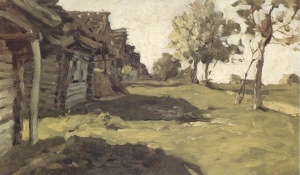
Stir the fire of my lips these days.
Oh my freshness, that begins to soften!
Oh my lost emotions, vehement gaze!
Presently I do not feel a yearning,
Oh, my life! Have I been sleeping fast?
Well, it feels like early in the morning
On a rosy horse I’ve galloped past.
We are all to perish, hoping for some favour,
Copper leaves flow slowly down and sway…
May you be redeemed and blessed for ever,
You who came to bloom and pass away…
1921
5
The tired day droops, slowly waning ,
The noisy waves are now tranquil.
The sun has set, the moon is sailing
Above the world, absorbed and still.
The valley listens to the babbles
Of peaceful river in the dale.
The forest, dark and bending, slumbers
To warbling of the nightingale.
The river, listening in and fondling,
Talks with the banks in quiet hush.
And up above resounds, a-rolling,
The merry rustle of the rush.
6
It’s sad to look at you, my love,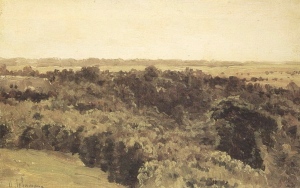
And its so painful to remember!
It seems, the only thing we have
Is tint of willow in September.
Somebody’s lips have outworn
Your warmth and body trepidation,
As if the rain was drizzling down
The soul, that stiffened in congestion.
Well, let it be! I do not dread.
I have some other joyous gala.
There’s nothing left for me except
For brown dust and grizzly colour.
I’ve been unable, to my rue,
To save myself, for smiles or any.
The roads that have been walked are few
Mistakes that have been made are many.
With funny life and funny split
So it has been and will be ever.
The grove with birch-tree bones in it
Is like a graveyard, well I never!
Likewise, we’ll go to our doom
And fade, like callers of the garden.
In winter flowers never bloom,
And so we shouldn’t grieve about them.
1923
Poems 1 –6 Translated by Alec Vagapov
7
Now all is set, and I forsake
My homeland’s woods and sunlit glare.
No longer will the poplars cleave
Their winged foliage in my hair.
The low house stoops without my height,
My faithful dog has long licked sod.
On crooked Moscow streets at night
I am to die, so promised God.
This town of elms, I love it well,
Decrepit, flabby – be it so.
And drowsy golden Asia’s swell
Has died upon the rounded domes.
And when the moonlight gilds the sky
Who knows just how it got that far!
My head hung down, I then espy
Across the street a well-known bar.
In foulest lair of noise and grime,
Through all the night until day’s brink,
To hookers I will read sweet rhyme,
And heat my bones with thugs and drink.
My heart will rise as throbbing sun,
Then I will say, in whispered shout:
“I’m just like you, O fallen one
I also have now no way out.”
On crooked streets in Moscow bright,
My loving dog has fled the rod;
My measly house has stooped in fright:
I am to die, thus deemed my God
1922
Translation Hadi Deeb
http://hadideeb.com/journal/2009/9/6/esenin.html.
8
To Kachalov’s Dog
Come, Jim, give me your paw for luck,
I swear i’ve never seen one like it.
Let’s go, the two of us, and bark
Up the moon when Nature’s silent.
Come, Jim, give me your paw for luck.
Stop licking me, pet, and please do
At least heed this advice I’m giving.
Of life you haven’t got a clue,
You do not realise life is worth living.
You master’s kind a man of note,
And visitors his home are thronging,
They all admire your velvet coat
Which smilingly they love to fondle.
You’re devilish handsome for a dog,
So charming, trusting, un-suspicious,
Not asking if you may or not,
Like a drunken pal, you plaster kisses.
Dear Jim, I know a great variety 
Of visions of all sorts call,
But have you seen her here, the saddest
And the least talkative of all?
I’m sure she’ll come here. In my absence
Please catch her eye. Go kiss her hand for me,
For all my real or fancied errors asking
Forgiveness of her in humility.
1925
9
The Blizzard
on 26 April 1912
“What do you need?” I pleaded
With the blizzard, “Please depart.
You summon sadness and dread
And worries that sicken my heart;
Why do you howl at my window?
Let me be now, I’m praying;
Move away, or stay and blow,
But don’t listen – I’m crying.
In hot prayers at this hour
I confess my sins to God,
My soul joins the Power;
Lost spirit, forgive me God.
I’ll be in a grave soon; blow hard,
Moan over me then, blizzard,
But now, please go away,
Or, for my sinful soul, please pray.”
10
The grove of golden trees has fallen silent,
Shorn of its gay leaves, in mute silhouette,
And so the cranes in sad file past it flying
Have no cause any more to feel regret.
For whom, for what? We are all rovers, starting
Out, coming home awhile, then traveling on.
The hemp field’s dreaming of all who departed
And there’s a full moon gazing at the pond.
I stand alone, the bare expanses viewing,
While on the wind the cranes are borne away.
Remembrance of my merry youth pursuing,
I find nothing I would relive today.
I don’t regret the years that I have wasted,
I don’t regret the lilac time of life.
A rowan fire is in the orchard blazing
But none shall from its brightness warmth derive.
Red rowan-berry clusters cannot scorch you,
The grasses will no yellow and decline.
As leaves fall softly from a tree in autumn
So I let fall these mournful words of mine.
And if time with its breezy broom should pile them
Into a heap to burn without regret…
Just say this … that the golden grove fell silent,
Shorn of its leaves, in pensive silhouette.
1924
11
Letter to Mother
Still around, old dear? How are you keeping?
I too am around. Hello to you!
May that magic twilight ever be streaming
Over your cottage as it used to do.
People write how sad you are, and anxious
For my sake, though you won’t tell them so,
And that you in your old-fashioned jacket
Out onto the highroad often go.
That you often see in the blue shadows
Ever one dream, giving you no rest:
Someone in a drunken tavern scuffle
Sticks a bandit knife into my chest.
Don’t go eating your heart out with worry,
It’s just crazy nonsense and a lie.
I may drink hard, but I promise, mother,
I shall see you first before I die.
I love you as always and I’m yearning
In my thoughts for just one thing alone,
Soon to ease my heartache by returning
To our humble low-roofed country home.
I’ll return when decked in white the branches
In our orchard are with spring aglow.
But no longer wake me up at sunrise,
As you used to do eight years ago.
Do not waken dreams no longer precious,
Hope never fulfilled do not excite.
Translation poems 9 – 11 by K.M.W. Klara
And this, perhaps the most hallucinatory of Yesenin’s poems
12
Black Man
My friend, my friend,
I am very sick. Nor do I know 
Whence came this sickness.
Either the wind whistles
Over the desolate, uninhabited field,
Or as September strips a copse,
Alcohol strips my brain.
My head waves my ears
Like a bird its wings.
Unendurably it looms my neck
When I walk.
The black man,
The black, black,
Black man
Sits by me on the bed all night,
Won’t let me sleep.
This black man
Runs his fingers over a vile book,
And, twangling above me,
Like a sleepy monk over a corpse,
Reads a life
Of some drunken wretch,
Filling my heart with longing and despair.
The black man,
Oh black man.
“Listen, listen”– 
He mutters to me –
The book is full of beautiful
Plans and resolutions.
This fellow lived
His life in a land of most repulsive
Thieves and charlatans.
And in that land the December snow
Is pure as the very devil,
And the snowstorms drive
Merry spinning-wheels.
This man was an adventurer,
Though of the highest
And the best quality.
Oh, he was elegant,
And a poet at that,
Albeit a slight
But useful gift.
And some woman,
Of forty or so,
He called his “naughty girl,”
His “love.”
Happiness–he said–
Is a quickness of hand and mind.
Slow fools are always
Known for being unhappy.
heartaches, we know,
Derive
From broken, lying gestures,
At thunder and tempest,
At the world’s cold-heartedness,
During times of heavy loss
And when you’re sad
The greatest art on earth
Is to seem uncomplicatedly gay.
“Black man!
Don’t you dare!
You do not live as
A deep-sea diver.
What’s the life
Of a scandalous poet to me?
Please read this story
To someone else.”
The black man
Looks me straight in the eye
And his eyes are filled
With blue vomit–
As if he wants to say,
I’m a thief and rogue
Who’d robbed a man
Openly, without shame.
Ah friend, my friend,
I am very sick. Now do I know
Whence came this sickness.
Either the wind whistles
Over the desolate uninhabited field,
Or as September strips a copse,
Alcohol strips my brain.
The night is freezing 
Still peace at the crossroads.
I am alone at the window,
Expecting neither visitor nor friend.
The whole plain is covered
With soft quick-lime,
And the trees, like horsemen,
Assembled in our garden.
Somewhere a night bird,
Ill-omened, is sobbing.
The wooden riders
Scatter hoof-beats.
And again the black
Man is sitting on my chair,
He lifts his top hat
And, casual, takes off his cape.
“Listen! listen!”–he croaks,
Eyes on my face,
Leaning closer and closer.
I never saw
Any scoundrel
Suffer so stupidly, pointlessly,
From insomnia.
Well, I could be wrong.
There is a moon tonight.
What else is needed
By your sleep-drunken world?
Perhaps, “She” will come,
With her fat thighs,
In secret, and you’ll read
Your languid, carrion
Verse to her.
Ah, how I love these poets!
A funny race!
I always find in them
A story known to my heart–
How a long-haired monster
Profusing sexual languor
Tells of worlds
To a pimply girl-student.
I don’t know, don’t remember,
In some village, 
Kaluga perhaps, or
Maybe Ryazan,
There lived a boy
Of simple peasant stock,
Blond-haired
And angel-eyed…
And he grew up,
Grew up a poet
Of slight but
Useful talent,
And some woman,
Of forty or so,
He called his “naughty girl,”
His “love.”
“Black man!
Most odious guest!
Your fame has long resounded.”
I’m enraged, possessed,
And my cane flies
Straight across
The bridge of his nose.
The moon has died.
Dawn glimmers in the window.
Ah, night!
Look, night, what have you done?
I stand in a hat. 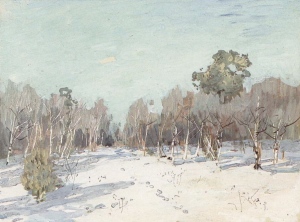
No one is with me.
I am alone…
And the mirror is broken.
Translated by Geoffrey Hurley
Read Full Post »
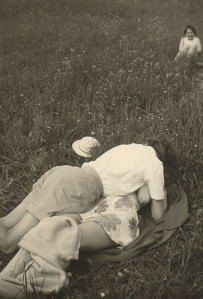


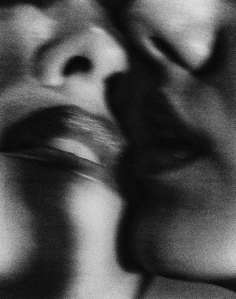
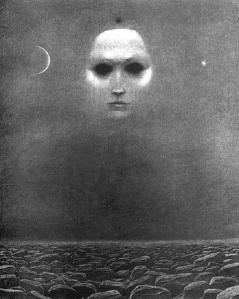
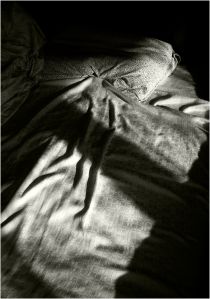
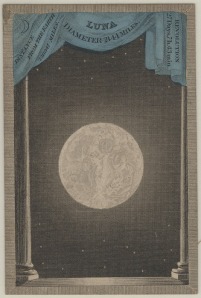
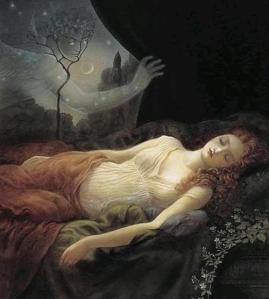

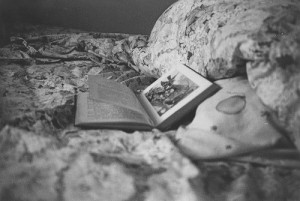
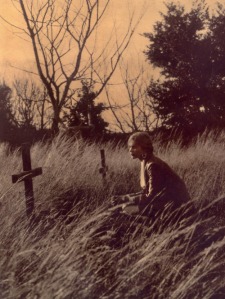
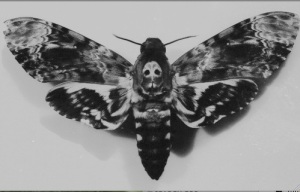

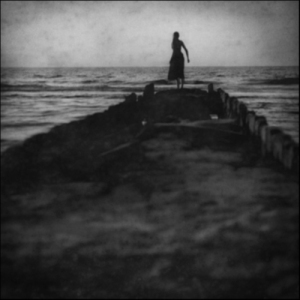



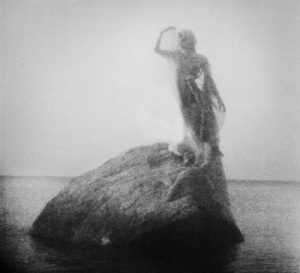

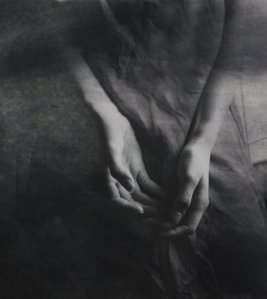
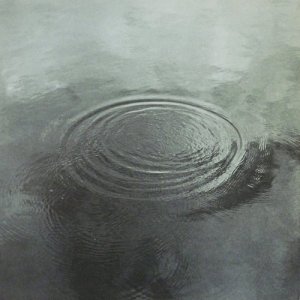 Uruguayan poet of Italian descent, who was murdered by her husband Enrique Reyes, a month after she had divorced him. Agustini had been married to Reyes for a month when the divorce was granted.
Uruguayan poet of Italian descent, who was murdered by her husband Enrique Reyes, a month after she had divorced him. Agustini had been married to Reyes for a month when the divorce was granted.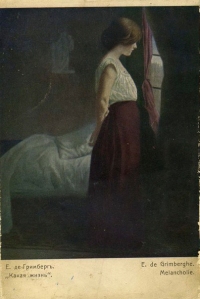 1944: Poesías, prologue by Luisa Luisi Motevideo, Claudio García & Co.
1944: Poesías, prologue by Luisa Luisi Motevideo, Claudio García & Co.
